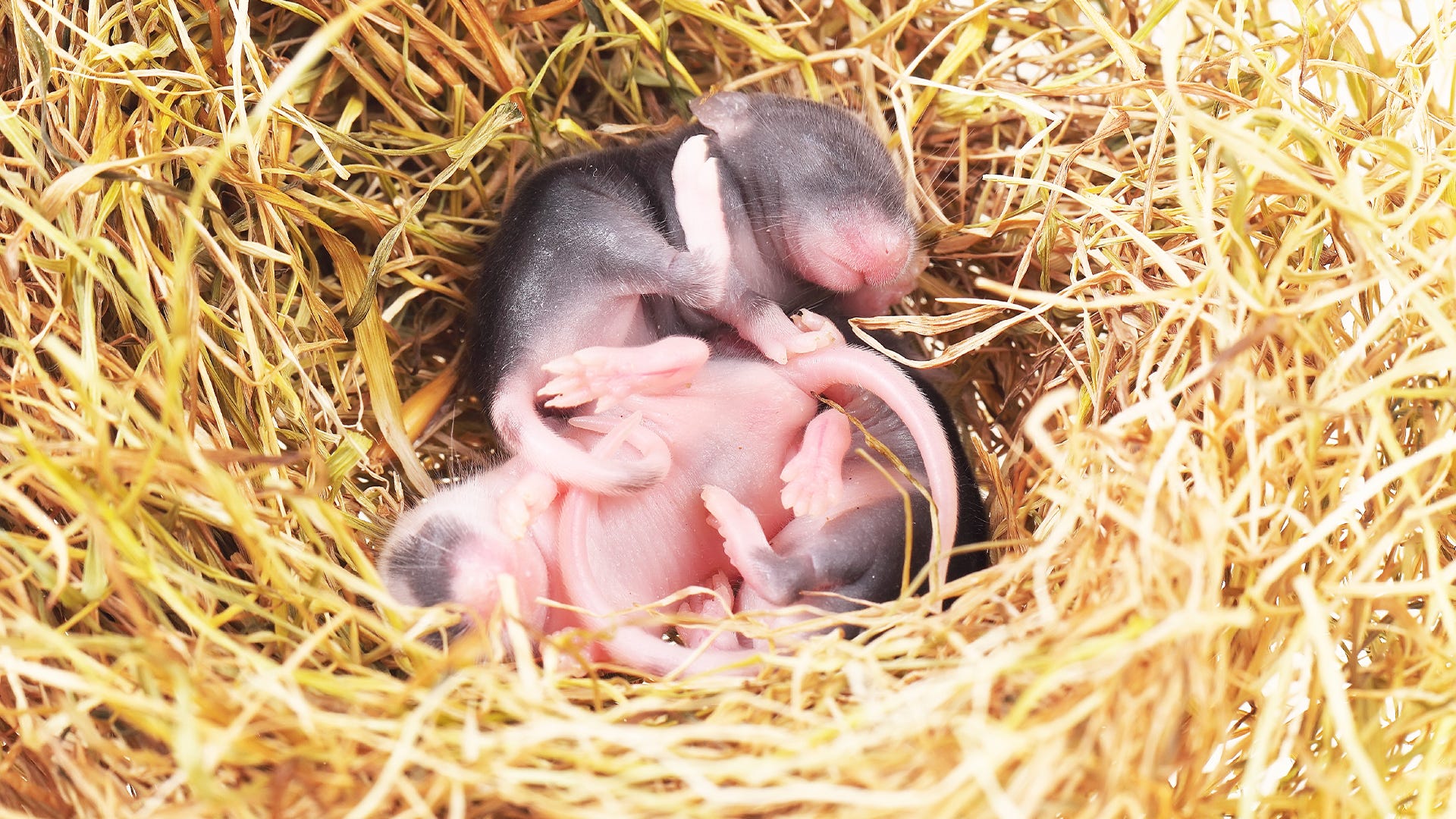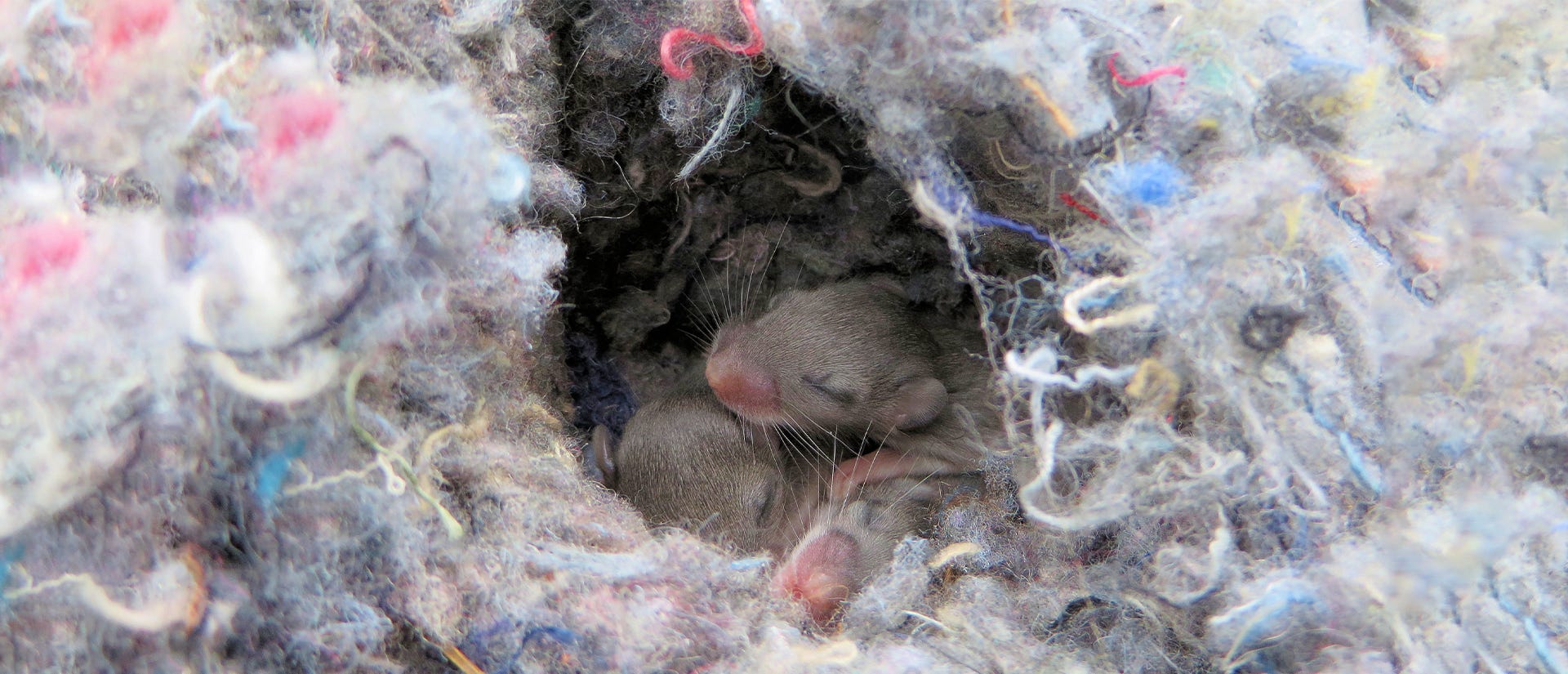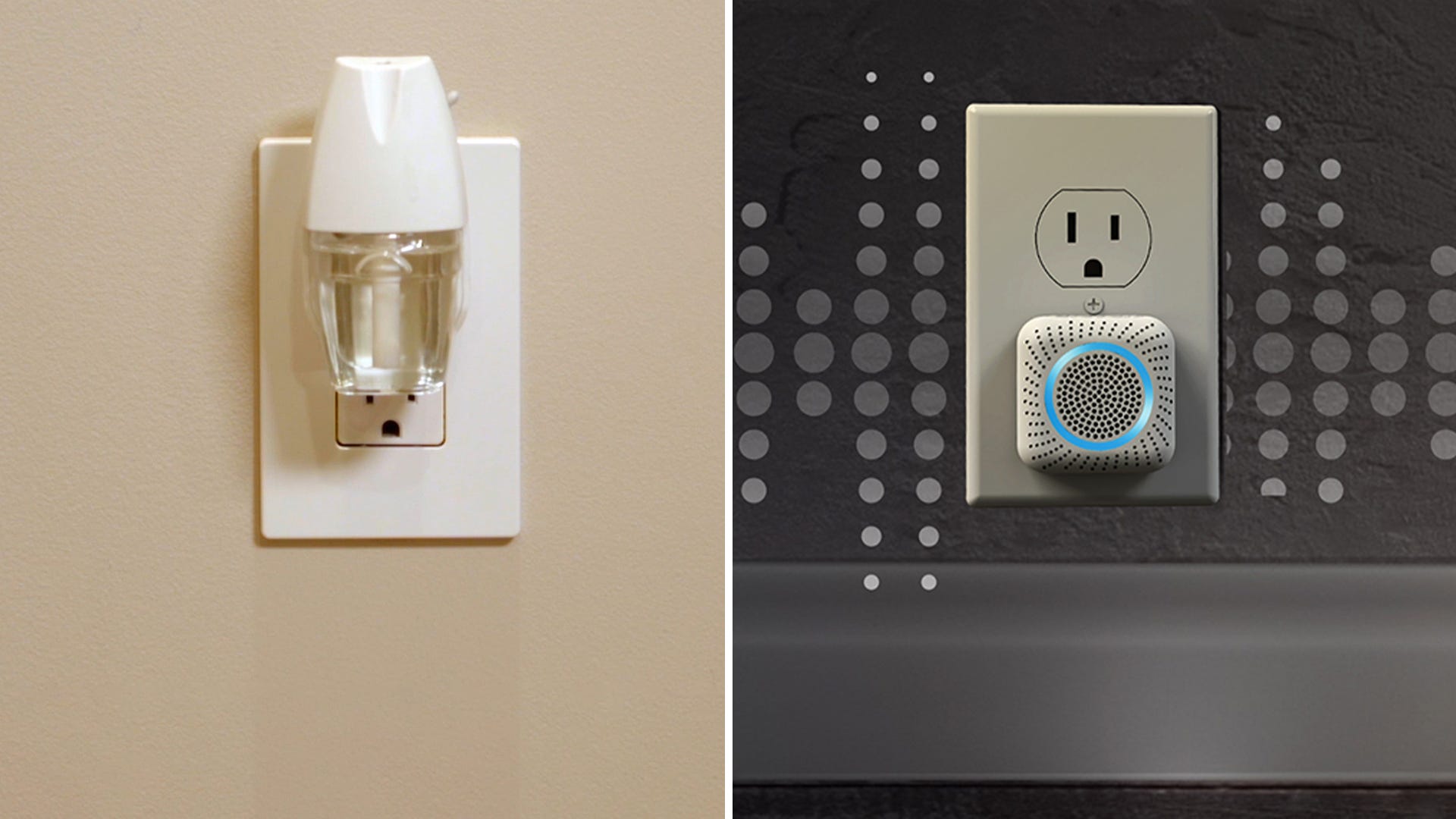
The question of how many mice are born in an average house mouse litter is a loaded one. The answer touches upon how one pair of intruders can multiply its numbers and become a serious infestation problem. Make sure to check out our control options below to see what options you have to solve an infestation problem. Let’s check out some of the numbers involved. Warning: Be prepared to be overwhelmed—and not just by the math involved!
When Does Mating Begin?
For starters, you have to have two mice, a male and a female. In some instances, females are already able to conceive at four weeks, but it usually isn’t until they are between six and eight weeks that they begin ovulating.
Once a pair successfully mates, it typically takes a little less than three weeks for the gestation period to be complete. The mother gives birth to between five and seven pups, although twice as many are possible.
What Might Keep These Numbers Down?
One of the reasons nature has decreed that animals in the wild have large litters is because of the environmental factors that work against their vulnerable young. Lack of sufficient shelter or food means that only the heartiest will survive, and mothers may even eat their young ones in stressful situations. According to University of Oklahoma professor, Douglas W. Mock, author of More than Kin and Less than Kind, a mouse might devour her offspring for two reasons.
- A mother will devote her family’s limited resources to the offspring with the best likelihood of survival; removing those she deems to be less hearty allows for less competition for food among the ones with the greater potential
- The calories obtained from eating her young allow the mother to better care for the surviving pups and be strong enough to have another pregnancy
For mice, as for many in the Animal Kingdom, it’s all about the survival of the species, rather than the survival of the individual. And the fathers take that very seriously, wanting to ensure that it is their genes specifically that are passed along to the offspring. If a male mouse suspects that the litter produced by his mate belongs to another male, he will kill the ones he believes are not his own.
Sometimes the male mouse doesn’t even have to wait for the babies to be born! When a recently impregnated female is separated from her mate, and a new dominant male enters her territory, the female may abort her fetuses. It is a decrease in progesterone production, caused by pheromones secreted by the male, that triggers this sudden termination of pregnancy. Known as the Bruce Effect, this phenomenon is not unique to mice and happens to other animal species as well.

How the Numbers Climb Exponentially
Even with all that is against them at birth and infancy, enough mice survive to compound any pest problem you may have in your home. With a lifespan of about one year in the wild, common house mice may live twice as long in the comforts of your home’s walls or foundation. Also worth noting: In the wild, mice have breeding seasons in the spring and fall, but indoors they mate year-round!
Just consider the potential a pair of mice has to increase its numbers. Your original two parent mice may be around for two years and are able to produce as many as ten litters – approximately sixty mice – each year. And don’t forget, with every litter comes a new batch of mice ready to procreate after another six weeks. Unless you’re breeding them, these numbers show how a small mouse problem could develop into a serious situation in no time.
Act Fast Before They Do
Now that you have some idea how two mice can turn into an army in short order, you can understand why Victor® didn’t stop after developing their best-selling Victor® Metal Pedal Mouse Trap. When a mouse intrusion goes unnoticed long enough, you will want to do more than catch them one at a time. Victor® offers a variety of options that let you tackle numerous rodents at one time. In addition to our snap traps, you can also try our Victor® Smart-Kill™ Wi-Fi Electronic Mouse Trap or Victor® TIN CAT® Mouse Trap.







